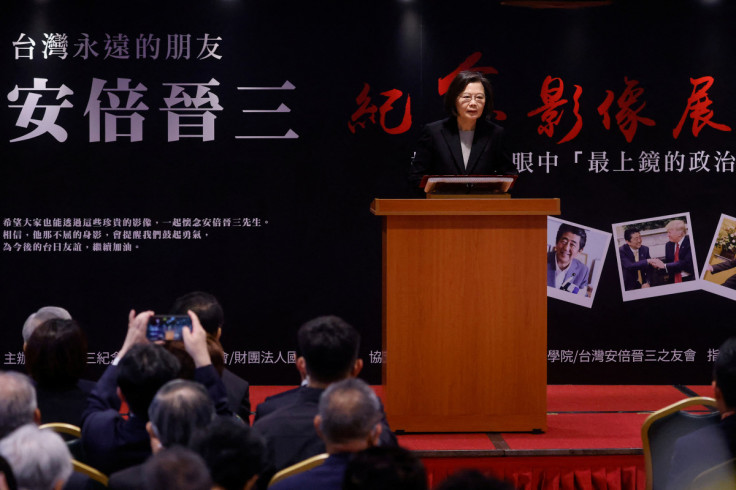No Reason For China To Overreact To Transit By Taiwan's President, Senior US Officials Say

The United States sees no reason for China to overreact to planned transits of the United States this week and next month by Taiwan's president, senior U.S. officials said, calling them consistent with long-standing practice and the U.S. one-China policy that recognizes Beijing diplomatically, not Taipei.
Speaking ahead of Tsai Ing-wen's expected arrival in New York later on Wednesday en route to Central America, the officials said Washington was also urging Beijing to maintain open channels of communication with the United States.
Tsai is due to transit through New York and Los Angeles as part of a trip to and from Guatemala and Belize, returning to Taipei on April 7.
Her first U.S. transit since 2019 and her seventh since taking office in 2016 is expected to include a meeting with U.S. House Speaker Kevin McCarthy in Los Angeles on her return from Central America next month.
That would be the first meeting on U.S. soil between a House speaker and a Taiwanese leader, and the prospect has angered Beijing.
China claims Taiwan as its own and responded to a visit last August to Taiwan by former House Speaker Nancy Pelosi with large-scale war games around the self-ruled island that it has vowed to retake by force if necessary.
A senior U.S. official said that in her previous transits Tsai had engaged in a range of activities, including meetings with members of Congress, the Taiwanese diaspora and other groups.
"So there's absolutely no reason for Beijing to use this upcoming transit as an excuse or a pretext to carry out aggressive or coercive activities aimed at Taiwan," the official said.
Beijing had stepped up military, economic and diplomatic pressure on Taiwan, the official said, but added: "These unilateral attempts to change the status quo will not pressure the U.S. government to alter our long-standing practice to facilitate transits through the United States."
Tsai's transits will come at a time when U.S. relations with China are at what some analysts see as their worst level since Washington normalized ties with Beijing in 1979 and switched diplomatic recognition from Taipei.
Taiwan is China's most sensitive territorial issue and a major bone of contention with Washington, which, like most countries, maintains only unofficial ties with Taipei. However, the United States government is required by U.S. law to provide the island with the means to defend itself.
The U.S. official said Washington continued to exchange views with China on a broad range of issues through multiple diplomatic channels.
"We urge the PRC (People's Republic of China) to keep open channels of communication," a second senior official said, also speaking on condition of anonymity.
This official noted that U.S. President Joe Biden had said he expected to talk to Chinese President Xi Jinping soon and added that Washington had discussed with Beijing a postponed visit by Secretary of State Antony Blinken and visits by U.S. Treasury Secretary Janet Yellen and Commerce Secretary Gina Raimondo.
Biden said last month after a U.S. fighter jet shot down a suspected Chinese spy balloon that he planned to speak to Xi about the episode and clear the air, but this has yet to happen.
The official declined to give details and also declined to comment on a Bloomberg report that cited people familiar with the matter as saying that White House national security advisor Jake Sullivan spoke with China's top diplomat Wang Yi on Friday.
The first official said Chinese officials "have not been shy about expressing their views" on the Taiwan situation and Tsai's upcoming transit and added: "I think it's safe to say this is one of several areas where the United States and China have significant differences."
China's Foreign Ministry said this month it strongly opposes any U.S. contacts with Taiwan and that it had made "stern representations" to Washington about Tsai's stopovers.
© Copyright Thomson Reuters {{Year}}. All rights reserved.





















